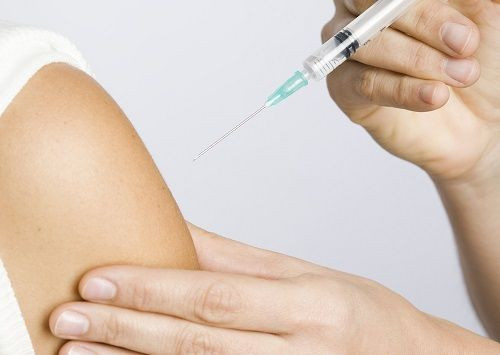One Dose Of HPV Vaccine Could Provide Long-Lasting Protection; Builds 5 To 24 Times Higher Antibody Levels Than Women Without Vaccine

Human papillomavirus (HPV) caused an estimated 529,000 new cervical cancer cases in 2008. In developing countries, it accounts for more than 85 percent of deaths, and 13 percent of all female cancers. With this in mind, a new study has found that some women can develop long-lasting antibodies to the virus with just one dose of the vaccine, rather than the recommended three doses — a finding that could offer hope for reducing these rates.
Helping Those Who Can't Afford The Three-Shot Series
Although there are more than 40 types of HPV that can infect the genital areas of both male and females, two strains (types 16 and 18) are responsible for more than 70 percent of all cervical cancers, while two other strains, (types 6 and 11) are responsible for 90 percent of all genital warts. Prevention includes using vaccines available worldwide, known as Gardasil and Cervarix, but only 33 percent of American females, ages 13 to 17, follow through with the recommended three-shot series, and many women in developing countries are unable to afford all three — each shot costs $130 in the U.S. — according to USA Today.
The study found that women who received just one dose of Cervarix built levels of antibodies stable enough to help fight against these strains, and that they still had these levels of antibodies four years later.
“Our findings suggest promise for simplified vaccine administration schedules that might be cheaper, simpler, and more likely to be implemented around the world,” Mahboobeh Safaeian, an investigator in the Division of Cancer Epidemiology and Genetics at the National Cancer Institute, said in a statement. “Vaccination with two doses, or even one dose, could simplify the logistics and reduce the cost of vaccination, which could be especially important in the developing world … where cervical cancer is one of the most common causes of cancer-related deaths.”
HPV is spread through genital contact, most often during vaginal or anal sex, and sometimes during oral sex. Most people won’t know that they are infected — therefore, they can pass it unknowingly — since their body can develop antibodies to the virus, causing about 90 percent of infections go away on their own, according to the Centers for Disease Control and Prevention (CDC). But if the virus doesn’t go away, it can lead to genital warts, and a number of cancers, including vaginal, penile, and oropharyngeal.
One Dose Is Way Better Than None
The researchers looked at blood samples drawn from 78, 192, and 120 Costa Rican women who received one, two, and three doses of the shot, respectively. They then compared the samples with 113 women who had not received vaccination, but had developed antibodies from HPV exposure in the past. For years later, they found that every woman that got a vaccine developed antibodies to types 16 and 18 of the virus. Those who were given two doses six months apart showed antibody levels comparable to those who were given three doses. Meanwhile, women who got one or two doses showed antibody levels that were five to 24 times higher than those in women who didn’t get any vaccine.
Both Gardasil and Cervarix are intended for females, ages nine to 26, over the course of 6 months. The second dose usually comes two months after the first, and a third booster shot comes at the six-month mark. In order to reduce the spread of infection, or the development of cancer, health care providers have recently begun suggesting that boys get vaccinated as well.
About 79 million Americans are presently infected with HPV. Each year in the U.S., the virus causes about 10,300 women to develop cervical cancer, and 6,700 men to develop oropharyngeal cancer, according to the CDC.
In April, a study on Gardasil found that only two doses of the vaccine helped women develop as many antibodies as those who had received three doses, and that they maintained those levels over the course of three years. Although the results of both studies are promising, Safaeian said that there needs to be more research on the efficacy of a single dose of Gardasil, as well as longer-term studies before policies can be changed.
Source: Safaeian M, Porras C, Pan Y, et al. Durable Antibody Responses Following One Dose of the Bivalent Human Papillomavirus L1 Virus-Like Particle Vaccine in the Costa Rica Vaccine Trial. Cancer Prevention Research. 2013.
Published by Medicaldaily.com



























